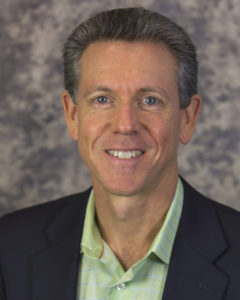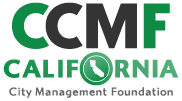 What initially prompted you to get involved with local government?
What initially prompted you to get involved with local government?
I always knew I would be drawn to a profession that allowed me to “give back” to society in some way, but it wasn’t until graduate school in Syracuse, NY that I really honed in on local government. Believe it or not, it was the movie “Doc Hollywood” that brought me to my career. The movie has nothing to do with running a city, but demonstrates the culture and value of small-town life, which is something I felt drawn to. Whereas in graduate school I was still contemplating a job with a Federal agency or large non-profit, this movie helped me realize the value of connecting your work with the people you are serving and it is at the local level that that happens best.
Why did you want to become a city manager?
I didn’t necessarily have my sights set on being a City Manager, but what I realized early on in my career was that I was often examining how I would have handled big decisions differently than the existing City Manager. I would eventually talk with others about the decision-making process and how to approach – or not approach – certain situations. Five or so years into my first position in the small town of Ojai, California, I began to recognize that I had a lot of input and ideas. To truly influence a community, I would need to strive for positions of greater authority and leadership. Ten years out of graduate school, I achieved my first City Manager job in Ojai and I have never looked back.
What was the most important part about your job as a City Manager?
Problem-solving! As a generalist, you often see problems from a different, broader perspective than the experts in the organization. While it is important to be knowledgeable about all aspects of local government, you don’t really need to be the master of any one thing. Every day as a CM, you are faced with decision-making and problem-solving opportunities. For me, that is one of the most rewarding and important parts of the job. It is empowering to have a group of experts come to you with problems that need solving and, as a person with a broad perspective, you end up offering the solution and/or supporting a solution through the collaboration of employees.
What are the greatest challenges facing City Managers in California today?
I think there are two prevailing issues facing Managers in local government. One issue is turning out to be universal, which is that college graduates aren’t moving toward the public sector for careers. On one end of the spectrum, we see the Baby Boomers starting to retire; meanwhile, at the other end of the spectrum, fewer and fewer graduates are looking at jobs in government. The statistics are quite staggering and create a huge challenge–not only for City Managers but also for the entire organization. Focusing on succession planning, better promotion of local government jobs, and engaging new employees in more meaningful ways is a challenge for Managers across the country.
The second issue is the attitudes of the public and media toward public servants. Online newspapers, blogs and social media have created a forum for people to publicly criticize elected and appointed officials without even having proper information to back them up. CMs are often the target of such negative and (often) nasty scrutiny, which can impact the morale and motivation of the entire organization. I think it also becomes a deterrent for younger professionals to want to seek the City Manager job and subject themselves to such public criticism and hostility.
What is the role of a City Manager in upholding the public’s trust in local government?
It is paramount for the CM, as the CEO of the organization, to act with integrity and the best interest of the organization and the community. There is no room for CMs to be selfish, self-serving or unethical. That is especially true today after such corrupt behaviors have been brought to light in local government in recent years. In order to earn the public’s trust back, City Managers must lead by example and demonstrate high ethical standards.
How are cities shaping the future of California?
I think people feel so disconnected (if not disenfranchised) by state and federal government. At the local level, however, people see the services that cities provide. Politicians are approachable, as are members of the organization. Services are delivered in a timely, efficient and fair manner at the community level. There are good lessons for our state legislators to learn from at the local level and it is in that way that cities have the opportunity to better California’s future.
What’s been one of your greatest professional challenges, and how did you address it?
My most significant professional challenges have come from working with people who are determined to discredit, defame or even just embarrass you. It makes it much harder to stay focused on your job when you are either being undermined or questioned or given unjust public scrutiny. Not to say that a healthy level of scrutiny isn’t useful or important. But, at times, it comes at a price and puts you in a position to either ignore the source or defend yourself, thereby taking you away from being a focused and effective leader, manager and problem-solver. Ultimately, you have to have thick skin, but also learn to act with understanding and compassion.
What has your work in public service taught you?
To always stay positive and fight for something you know is right. As the “Paradoxical Commandments” by Dr. Kent Keith reads: “What you spend years building may be destroyed overnight…build anyway.” I’ve learned the importance of resolve and determination, but also of the act of listening. If you don’t have a balance of each of these qualities, you will fall victim to your own ego or to the disappointments that come with having things “destroyed overnight,” neither of which are flattering for a City Manager.
